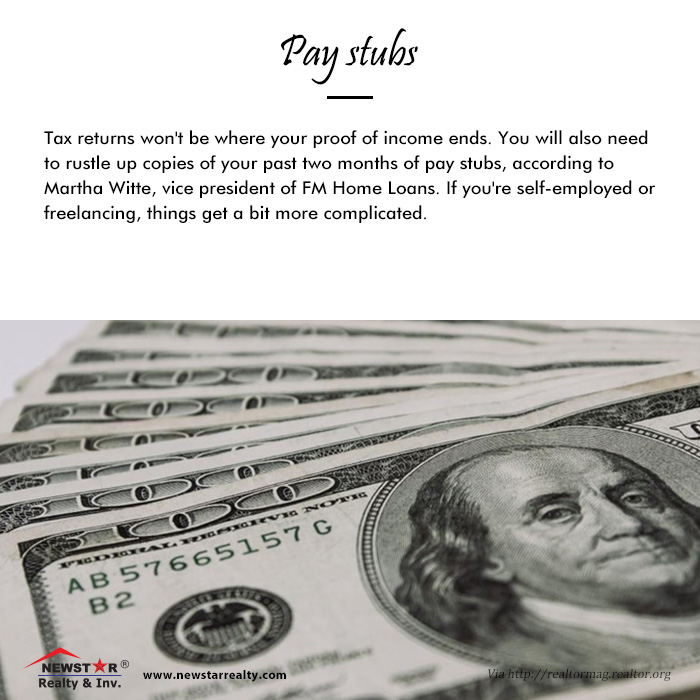
Tag Archives: house
STOP Paying Rent and BUY a Home
LA Griffith Park Tips













New Star Realty Korean Site Renewal
6 Easy Ways to Become a More Profitable Real Estate Investor

For many real estate investors, it’s tough to make a profit. It’s not as easy as the TV shows make it seem. But with some basic best practices, you can make some serious money.
I’ve invested in rental property for over 10 years now, and I’ve learned some tough lessons. However, I’m more bullish on real estate investing than I ever have been. There has never been a better time to be a landlord in America.
Real estate doesn’t change much, as it can take decades for a property to appreciate. What can change rapidly is how you manage your properties.
Before modern technology, tenants would:
- Drive around and/or read the newspaper classifieds to find available rental properties.
- Call and schedule a tour of the property.
- Fill out a paper application.
- If accepted, they would meet you at the property, an office, or a coffee shop to sign the lease.
If you’ve used any kind of technology in the past five years (like a smartphone), you’re aware of the benefits.
Real estate is prime for disruption because many agents and investors are using technology from the 90’s.
If you like the idea of using technology to save time, here are some ways to make your real estate business more profitable:
1. Install A Programmable Thermostat
Housing is a commodity and isn’t, by itself, personal. However, people crave personalization and want to feel special. If you are targeting a particular demographic, think of how you can offer extra and personalized features to the property. One of my friends caters to senior citizens, for example. He makes sure his doors are 33 inches wide and that the properties have security systems.
I like to target energy-conscious tenants. Even if you don’t personally care much about the environment, you probably don’t like having a high utility bill. I suggest getting the first-generation Nest to save money.
Nest is a programmable thermostat. Although programmable thermostats have been around a long time, the Nest is different because of its simplicity of use. My wife installed ours in less than 10 minutes and had it integrated on her iPhone in fewer than five minutes. And best of all: The Nest learns your behavior and automatically adjusts its settings. A Nest pays for itself in about a year.
Another great item to personalize a property for your energy-conscious tenant is the Philips Hue lightbulb, a programmable, color-changing LED bulb that gives users flexibility over the color of light emitted. This allows you to set the mood for any occasion.
2. Install High-Tech Locks
What happens when one of your tenants gets locked out?
Many tenants live on their smartphones and enjoy the productivity benefits. So consider adding a smart lock that can open with a key or bluetooth. This is a benefit to tenants in case they need to let a friend in, and it’s a benefit to you as you can grant temporary access to maintenance workers.
3. Use Online Systems
Offline and paper-based transaction methods are time-consuming and costly.
The cost with using a paper-based system is with the extra time it takes to sort through paper-based applications, screen tenants manually, and process checks. This problem is exacerbated in my business, since I have a business partner and we like to share information.
To solve this, I use Cozy. With Cozy, all these processes are fast and easy because we have a company log-in that we both use.
4. Collect Rent Electronically
The number one complaint I hear from tenants is that their landlord doesn’t accept electronic payments. Making tenants write a check and mail it to you is not timely, efficient, or convenient. Other tenants want to pay in cash, which requires you to collect in person, which is also inefficient.
Cozy offers a way for tenants to pay their rent electronically.
- If your tenants set up an ACH transfer, payments are deposited within 3-5 days of the tenant initiating the payment, and it’s free for them.
- If your tenant pays with a credit card, they pay 2.75%. The money is deposited 1-2 days after they pay.
I encourage you to visit the “How Payments Work” section on Cozy’s website for more information.
5. Develop a Niche Brand
Branding your business by clearly communicating who you are to the public can be beneficial.
I’m a coffee fanatic, for example, and I make it a point to buy a coffee mug from every title company I have a closing with. Recently, a title company was trying to get my business, and they brought my team and me branded glasses. I told them this was unique. They responded with:
We know you have everybody else’s coffee mugs, so we thought you should get glasses.
I guess my brand is getting around!
Business cards are often thrown away, but coffee mugs with the name of your company and phone number are incredibly useful.
You can also offer a monthly giveaway for local products and services. The cost of this branding doesn’t have to be expensive, and the payoff from longer-leasing tenants and referrals can make this a huge return on investment.
6. Upgrade Your Computer’s Security
With wireless connectivity for several applications in your properties along with Wi-fi that is sometimes public, security will be the forefront of any conversation about technology advances.
As landlords, we collect a lot of information about our tenants: names, phone numbers, address, income, workplace, next of kin, references, etc. It’s not too farfetched to think of personalized services based on this information. However, what would happen if this data were stolen?
I recommend taking extra security precautions with internet-based tools such as using a password manager like 1Password, which saves all your PINs, passwords, and even credit card information in one place. When you need to sign into something, you just have to click once. 1Password information is encrypted, so you never have to worry about that information being hacked.
Credit to Jimmy Moncrief
Jimmy is a multifamily real estate investor and bank credit officer.

newstarrealty.com
Noisy Neighbors Drive Me Crazy. Now What?

Whether you’re a renter in an apartment building, a duplex, or any other rental home, you deserve relatively quiet living conditions, no matter how many neighbors live nearby.
While neighborly noise is to be expected once in a while, a neighbor’s blaring stereo, shouting matches, or late night dance parties might take things too far. So what should you do when you can’t handle the noise?
What Not to Do: A Personal Story
During my renter years, I moved into what seemed like an ideal scenario: a budget rent price for a modest upstairs unit in a landlord’s house. Things seemed great at first, until the landlord and her teenage daughters regularly shouted at one another from 5 a.m. to 6 a.m., consistently waking me after just a few hours of sleep. If I tapped on the floor (their ceiling) to remind them of the noise, the landlord yelled at me to shut up! Unbelievable, right?
They also kept a young doberman in a cage while they were away at work and school. Naturally, he wasn’t thrilled about and he barked. A lot. When the kids came home from school, he barked even more, at which point the angrier of the teens would shake the cage and shout at the dog. I’m sure it was traumatic for the dog, and all the noise and anger traumatized me for years, even after I left.
I couldn’t afford to move out, so I dealt with the nighttime noise by turning on a loud fan before bed each night to help lessen the impact of the downstairs discord. I was afraid to complain too much for fear of eviction, especially since we didn’t have a written lease. Once I finally earned enough to move out, I moved, posthaste.
Quiet Enjoyment
Don’t put yourself through the anguish I suffered for years when I was too inexperienced to know how to handle such things. Every renter — even in a situation such as mine — has a right to quiet enjoyment, the right to a peaceful place to live. This doesn’t mean you won’t hear an upstairs neighbor walking or moving furniture from time to time. It means the place should be peaceful enough from day to day to sleep or to carry on daily activities without being interrupted by aggravating levels of neighborly noise.
Step 1: Give a Simple Neighborly Suggestion
If you know your neighbor — at least well enough to share a friendly smile or “hello” once in a while — point out in a calm, gentle manner that their speakers, dog, or television is so loud it’s disruptive. It could be that they’re unaware that anyone else can hear what goes on behind closed doors, or maybe they think their dog is quiet while they’re away for the day. For your own records, write down the date, a summary of what each of you said to one another, and whether the issue was resolved.
If you feel intimidated about approaching your neighbor directly, go to Step 3 below.
Step 2: Read Your Lease
If your neighbor isn’t responsive or repeatedly causes a cacophony that keeps you up all hours of the night, it may be time for more serious action. If you live in a building, read your rental agreement to look for any language about excessive noise. Make a copy of the page, highlighting the appropriate information, and give it to the noisy neighbor. Be sure to point out any verbiage about potential for eviction due to noise violations or information about “quiet hours” in which all tenants are expected to be relatively quiet.
Step 3: Contact the Landlord
Contact your landlord, and spell out exactly what’s going on: the type of noise, when and how often it happens, and any methods you’ve taken to try to resolve the issue yourself. If the noise has been going on for hours, ask an on-site property manager or the landlord to check out the situation while it’s happening.
Step 4: Get Your Town Involved
If your neighbor’s noise can be heard outside or from shared common areas such as a hallway, they may be in violation of local noise ordinances. Contact the non-emergency police number if you can’t find this information on your town’s website. Ask the representative for information about noise regulations. If your neighbor is in violation of the ordinance, let the landlord know. It’s in the landlord’s best interest to deal with the problem since he or she could be held responsible and receive a warning or citation.
If the noise sounds dangerous or threatening or all of your efforts have seemed in vain so far, contact the police. This approach works best if the noise has been going on for hours or if it happens at the same time regularly. The police or a noise-enforcement official may visit with a decibel meter to determine whether your neighbors are in violation of local laws.
Step 4: Arrange a Meeting
Contact other neighbors to see if they’ve been bothered by the noise. If so, arrange a meeting with your landlord and all affected, including the noisy neighbor. Power in numbers may be enough to convince the neighbor to quiet down or for the landlord to evict a noisy tenant. If it seems the noisy person isn’t interested in quieting down, inform them that you and the others plan to take them to small claims court if things don’t change. Also say that the cause is well-documented by you, other tenants, the landlord, and even local authorities. All of this evidence may be enough to create a peaceful environment.
Alternate Action: Moving Out
Since you are guaranteed a peaceful living environment, you may have the right to terminate your lease if lack of peace is an ongoing issue.
Credit to Kathy Adams
Kathy is an award-winning investigative journalist, not to mention a writer, brand blogger, decor/DIY expert, renter, commercial landlord. She also writes for brands such as Behr, Kroger, Canon and Black+Decker on topics pertaining to home and apartment decorating and maintenance.

How to Submit a Helpful Maintenance Request

Problems happen. The dishwasher leaks, the heater doesn’t heat, or the air conditioner only makes noise. A maintenance request helps ensure that your landlord (or the building’s management company) does something about the issue in your rental unit.
To make sure the issue is addressed properly and in a timely fashion, your maintenance request should contain useful information and be thorough. The more helpful and specific the information, the more likely your maintenance request receives an appropriate resolution.
1. Call As Soon As Possible
Call your landlord or property manager shortly after you’ve noticed an issue. Read your rental agreement to ensure you call the right party. Calling an out-of-town landlord is far less efficient than calling a maintenance person or site manager within minutes of your rental.
If the situation is an emergency, such as a broken pipe causing a flooded bathroom, look for an emergency maintenance phone number on your rental agreement, and call it immediately.
If it’s not an emergency, let the landlord or site manager know whether the maintenance crew can enter your apartment while you’re away. If you prefer to be home when the work takes place, offer a block of several hours in which the work can take place.
2. Follow Up in Writing
If you request is addressed within two days (or within the time the landlord or manager said it would be handled) — great — your work is done!
If not, or if you left a message via voicemail and haven’t heard back within 24 hours, it’s time to put your request in writing. The Cleveland Tenants Organization offers a simple notice to correct conditions. A more formal request form is available through the Tenants Union of Washington State. Here’s what to do:
- Fill out all the required information and spell out in specific detail exactly what needs repaired in your apartment.
- Include written notice of when you first placed a call requesting repairs.
- Mail (or drop off) the notice to the landlord or property manager (whomever is indicated in your original rental agreement).
- Send the notice via certified mail, or take the letter to the post office and pay for postage directly with a postal clerk. That way, you can get a receipt that has tracking information. (A stamped letter dropped into a mailbox isn’t trackable. You’ll have no proof that the other party received the letter.)
- Have the person sign a piece of paper stating that they received the letter. This applies if you dropped the letter off directly to the person in charge of handling your request. (Prepare this in advance and take it, along with a pen.)
- Keep written records and proof of all maintenance requests and communications regarding the maintenance issue.
3. Wait the Proper Amount of Time
In many cases, maintenance issues are taken care of within 48 hours, but the legally required time frame varies by state. For instance, in Washington State, serious issues such as no hot water or electricity must be dealt with within 24 hours. But 72 hours is acceptable for a refrigerator or oven repair. If you’re concerned that repairs are not happening in a reasonable amount of time, look up your state’s laws here.
4. Consider Dealing With Minor Issues Yourself
Minor issues, such as a small hole in the carpet are not required to be fixed.
A landlord is legally required to keep the property in habitable condition. But minor repairs such as a dripping faucet or a small hole in the carpet are not required repairs, according to a tenant’s rights article on FindLaw. You may not be able to force the landlord to handle such repairs, but a well-written request pointing out the benefits of repair can greatly help your cause. For instance, spell out that a running toilet or dripping faucet wastes water, leading to an increasing water bill that wastes the landlord’s money.
Bottom Line
Even if you have a great relationship with the property manager, a written request matters more than a verbal request. This is true even when renting from an individual that you see nearly every day, such as a duplex owner that lives in the other unit of the duplex. A written and dated maintenance request leaves proof of the issue in case the responsible party takes a while before doing anything about it.
No matter what your reason for submitting the request, be sure to make it look as professional as possible. Consider typing it out instead of writing it out by hand so there’s no question of legibility. If you do all these things and submit the request to the proper party (as spelled out in your rental agreement), your maintenance issue should soon be resolved.
Credit to Kathy Adams
Kathy is an award-winning investigative journalist, not to mention a writer, brand blogger, decor/DIY expert, renter, commercial landlord. She also writes for brands such as Behr, Kroger, Canon and Black+Decker on topics pertaining to home and apartment decorating and maintenance.

Help First-Time Sellers Through the Sale

Like rookie buyers, clients who are new to selling need extra hand-holding through the sales process.
Even the most steely-eyed sellers can get emotional when it’s time to list their home. It’s the place where they raised their children, gathered friends for annual holiday parties, or painstakingly executed their design vision over many years. The longer they have stayed in a home, the greater the challenges they may face getting up-to-date on the rules and regulations governing transactions. Those who have never before sold are, indeed, in uncharted territory. Here are suggestions for working with first-time sellers who may find the financial and legal complexities, as well as the emotional terrain, especially daunting.
First-time sellers who have never contended with buyer demands may not initially understand how neutralizing their home or adding small upgrades can make their property more competitive on the market. Using data to highlight comparable nearby homes and what they’re selling for is a good place to start, but make sure to explain how the data supports your argument. Andy Werner, abr, e-pro, associate broker at RE/MAX Realty Group in Gaithersburg, Md., says many first-time sellers don’t realize how minor repairs can elevate their property’s market value. Buyers typically expect a home to be in move-in condition, so sellers who choose not to upgrade could face a $10,000 to $15,000 price reduction, he says.
“I tell buyers that if you don’t fix up your house, the buyer will go around the corner and buy from someone who did—and they’ll pay $5,000 more,” Werner says. Such an explanation demonstrates market fundamentals to your clients and keeps them on track toward the closing table. The costs of modest repairs, such as repainting, installing carpet, and refinishing or replacing kitchen cabinetry, are often recouped at resale, Werner adds.
Selling After Decades of Owning
Some common seller issues become more difficult simply because of how long a first-time seller has lived in a home. Decluttering, for example, can be hard enough for someone who’s been in their home only five years. Imagine how challenging it is for sellers who have lived in a home for their entire adult life.
It’s not just emotional resistance they’re experiencing. First-timers may simply not be aware of how clearing out personal items improves the odds of a sale. Alice Chin, psa, a broker with Keller Williams Infinity in Naperville, Ill., recommends that sellers who have never dramatically decluttered their homes before do it in stages, clearing one room at a time. Slowing down the pace can ease the mental and emotional pressure involved in getting rid of personal items, she says, and once sellers see the results in one room, it can encourage them to continue working on the rest of the house. If your client needs more convincing, ask a professional home stager to weigh in, Chin says.
Patience Is a Virtue
All sellers benefit from practicing patience while waiting for the right buyer, but this is doubly true for those who are listing a vacation home in resort areas for the first time. They face different market dynamics than if they were selling a primary residence, says McKee Macdonald, a broker with Coldwell Banker Carlson Real Estate in the ski resort town of Stowe, Vt. Many of his clients who are new to selling are shocked to learn how long it can take to sell—an average of 250 days in his market. Some properties have languished for as long as five years, he says.
Therefore, first-time sellers require a higher degree of communication so they can be prepared for the realities of a niche market, Macdonald says. He explains that traditional marketing tactics such as open houses aren’t always effective because the number of skiers (who are prospective buyers) in town on weekends is unpredictable. Instead, he advises his clients to consider renting out vacation properties while they wait for a buyer. After all, selling a second home often isn’t urgent, and a seller’s motivation can change. “Some sellers say, ‘Throw it out there. If we get the price we want, great. If not, I’m still using it,’” Macdonald says.
Experienced Sellers Can Be Rookies
Even seasoned sellers can feel like newbies when market conditions have changed markedly since their last sale. A client who sold one property during a downturn may be ill-prepared for today’s tight-inventory environment and the stress of handling multiple offers. Though it’s a nice problem to have, it can still be overwhelming.
Ashleigh Fredrickson, sales associate at 8Z Real Estate in Denver, says the biggest challenge for sellers of all experience levels is determining which offers stand the best chance of holding up. In a strong seller’s market, buyers can get swept up in the heat of the moment and bid 10 percent over list price only to realize later they won’t be able to qualify for financing, she says. So it’s important to counsel sellers—particularly those who have never been in such a situation—that the highest bid isn’t necessarily the best. “You want to make sure you’re getting the most qualified buyer so that you’re not back out on the market again,” Fredrickson says.
She suggests using a spreadsheet to help sellers analyze competing bids, taking special note of any contingencies. Your clients need to understand that a higher offer with more contingencies may not be in their best interest. “Maybe the timeline is paramount, so the seller will sacrifice a couple of thousand dollars to ensure the deal is done by a certain time,” Fredrickson says.
Above all, directness and thorough education are what every first-time seller needs, Macdonald adds. When a sale isn’t going the way a seller had imagined it would, “you need to look for strategies to offset the negatives.” But always “give sellers the honest truth, and don’t sugarcoat it,” he says.
Buying or Selling?
What You Need to Buy A House




















